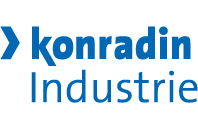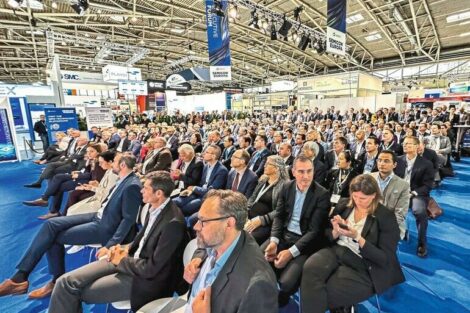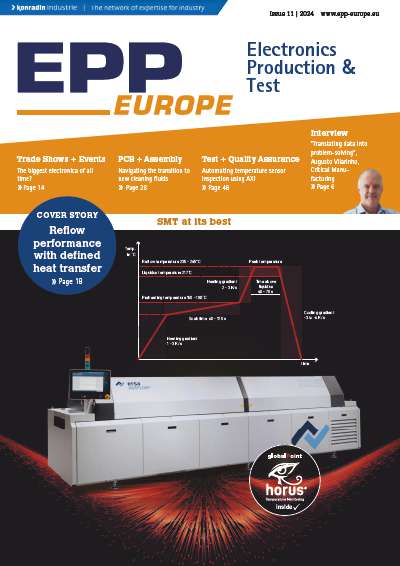Can you remember? About 12 months ago an economic crisis really battered industry and society worldwide. And now, just within a short year, most of the economies in Central and Northern Europe have regained their former strength. This economic miracle can too, of course, be monitored in the electronics industry which has recovered enormously from a sharp 50% decline to more than 50% growth in demand. Which industry can survive such a murderous oscillation?
It was interesting to see that a couple of electronics industry top-shots were discussing the issues involved in the move from a catastrophic to a fortunate event in such a short time during the CEO Round Table event at the electronica in Munich. Well, „what lessons have we learnt from the crisis?“ was the motif around which the discussion revolved. And there are definitely lots of things that can be learned from such a dire situation. This illustrious powwow closed their findings with Solomonic wisdom like „never miss a good crisis“.
As other industry pundits and observers have noted there are a good many prominent electronics technology drivers which are keeping the ball rolling. We can see a multitude of them: the application in automotive environments; the vast range of energy-related implementations; the ever tighter integration of PC, internet/telecom devices, cameras, MP3 players, navigation systems, novel lighting technics, and so on to a real personal transactor; healthcare and medical instruments, safety and data protection, just to name the main engines. As this will all happen first on the semiconductor front (with their ever increasing run to minimized chip structures as well as shorter life and business cycles), in the end a huge community of OEMS and EMS companies in the PCB-assembly area are the ones who have to build the solutions which go to the end-users.
And these manufacturers in turn keenly go for ever more efficient and capable equipment in order to provide the devices more cost-efficiently, faster and also with higher precision, and with drastically reduced dpm rates for possible production errors. Taking into account a steadily growing demand and the replacement of worn-out or obsolete units, this will finally stimulate the production-equipment industry, as all the board assemblers rely on their machines and perfectly functioning technology. It certainly won’t guarantee automatic growth, since the semiconductor business cycles always place high burdens on this industry, but for well-managed enterprises it can be a good opportunity to start business cycles anew, like the phoenix from the ashes – as many are currently doing. Good luck!
Share:











